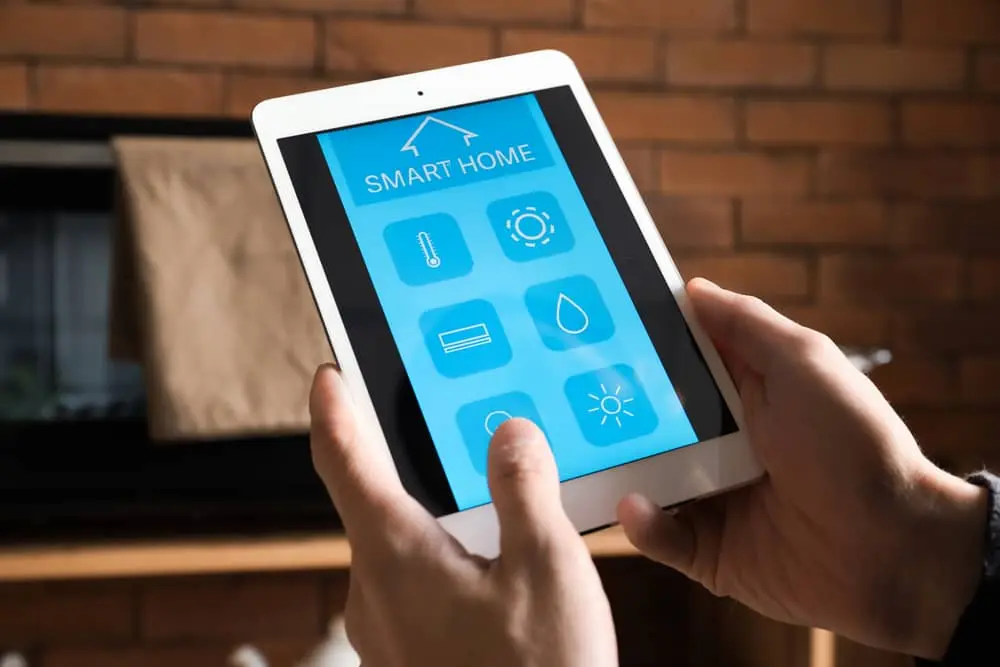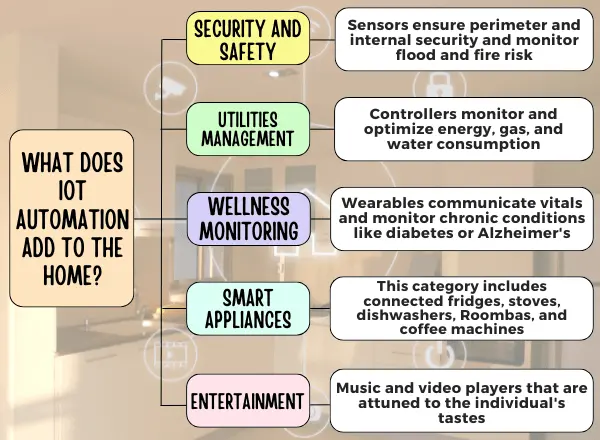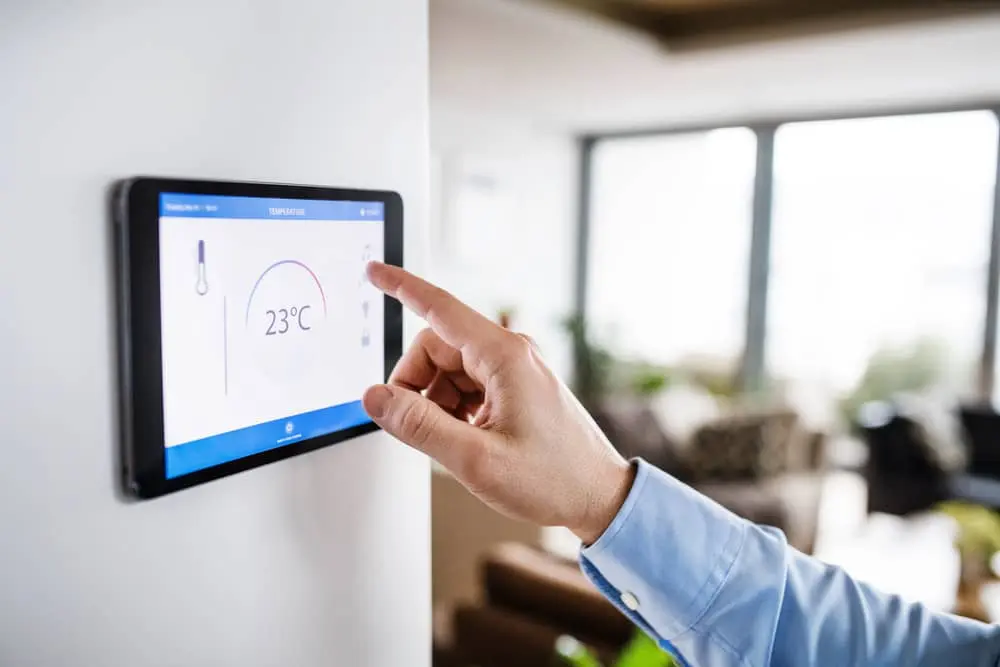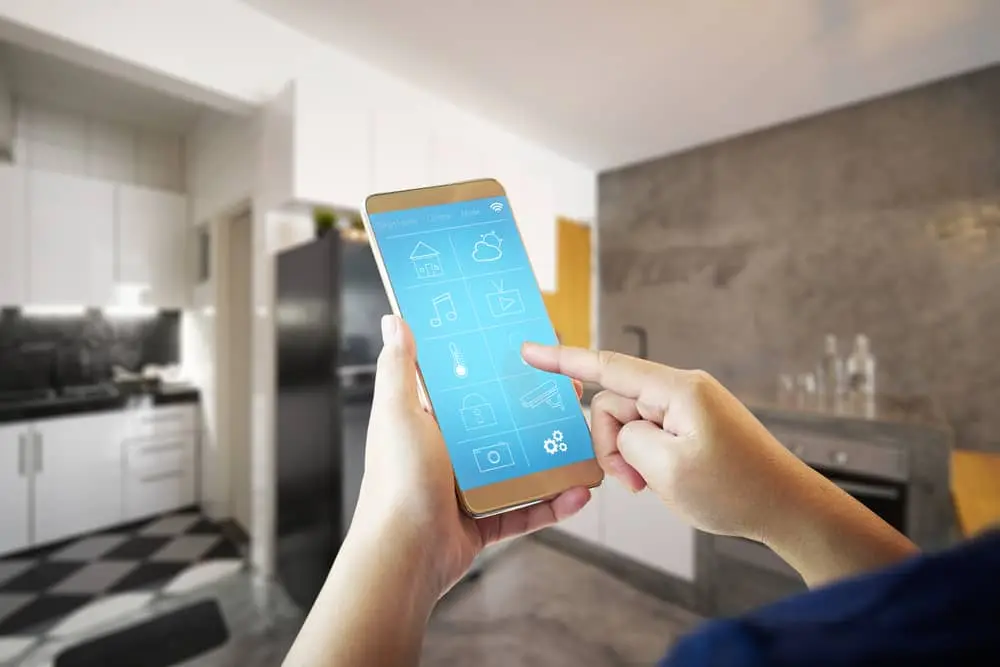Technology is always present in our daily lives. Smart thermostats control our household temperatures. Security devices keep our homes safe while we’re away. Wearable technology continuously monitors our health. A camera watches our pets at home. We can’t escape technology, so we might as well embrace it. As we incorporate more technology into our day-to-day lives, it can be quite confusing to understand the terms for various technologies.
It’s normal to hear “smart home” and “home automation” used interchangeably, but while they are related, they are different. Is home automation the same as smart home?
What is Smart Home Technology?

Smart home technology typically refers to a series or class of electronic gadgets and sensors controlled over the internet with a computer, phone, tablet, or other devices.
A smart home device usually has a dedicated application that can be utilized to control the technology within a certain ecosystem. Examples include light switches that can be used remotely, surveillance cameras that can be checked from anywhere, thermostats that can be set to follow a routine or change instantly, and energy or water meters that enable real-time tracking usage.
Technology within your house that you can monitor, operate, or access information without physical interaction is considered smart home technology.
When Can a Device be Called Smart?
IoT smart home devices do not all have to be smart, but they should be connected to an IoT platform or other smart devices, such as voice-activated digital assistants. These devices, such as a thermostat, can be managed at the other end of the smart scale.
- Monitoring. Various sensors detect a device’s location, operation, condition, and surrounding environment.
- Control. Embedded software controls and personalizes a device.
- Optimization. An analytical system diagnoses and optimizes a device’s operation.
- Autonomy. AI algorithms allow a device to operate autonomously, coordinate with other systems, self-diagnose, and self-enhance. These are true “smart” devices.
By these definitions, we would expect a truly smart HVAC system in the IoT smart home to sense someone entering the room and adjust the temperature to their taste without human intervention.
How Does a Smart Home Work?

The Internet of Things pertains to objects connected to the Internet communicating with one another other and with cloud servers.
IoT technology makes a smart home smart. Let’s not go into technicalities, but let me clarify your basic concept. Smart devices use protocols such as Zigbee, Z-wave, and RF (radio frequency) to communicate with cloud servers.
When a homeowner sends a signal to a smart device to turn on or off a light, a smart device sends that signal directly to the cloud. Cloud servers understand and process the data and take necessary action for the targeted home appliance.
Future of Smart Homes
The future of the smart home industry is as bright as the sun. Millions of people will adopt IoT technology in the future, changing humanity’s working, living, and survival styles.
What Does IoT Automation Add to the Home?
Smart homes offer much more than comfortable ambient temperatures. Every day, new devices that supposedly make your home smarter emerge on the market.
- Security and safety. Sensors ensure perimeter and internal security and monitor flood and fire risk.
- Utilities management. Controllers monitor and optimize energy, gas, and water consumption.
- Wellness monitoring. Wearables communicate vitals and monitor chronic conditions like diabetes or Alzheimer’s.
- Smart appliances. This category includes connected fridges, stoves, dishwashers, Roombas, and coffee machines.
- Entertainment. Music and video players that are attuned to the individual’s tastes.

Some of these categories overlap: for example, Samsung has a refrigerator that can play music, control other devices with its digital assistant, Bixby, and compile shopping lists.
Likewise, adaptive learning is now being used in homes to customize automated systems based on the user’s moods, patterns, and behaviors. For example, the WBM thermostat utilizes learning features to adjust the house’s temperatures to the homeowner’s preferences. After a short week-long learning period, the thermostat will learn the homeowner’s schedule, which temperature they prefer, and when to adjust its behavior accordingly.
So, What About Home Automation?
Home automation utilizes smart home devices to create events without user interaction automatically.
Home automation allows smart devices to collaborate and operate together using mutual feedback. This often starts with a home automation controller that connects different smart home devices and receives signals based on specific events. From that point, the home automation system can instruct other devices to perform actions depending on the kinds of events they detect. The aim behind home automation is to automate specific tasks and processes for a simplified user experience.
For instance, you want to set your smart home devices to a certain scene as you wake up. (A scene generally means a set of smart home gadgets programmed to operate together according to a specific application or program.) You would set up a scene with home automation to enhance your morning routine. It could involve beginning your favorite playlist on your speakers, adjusting your lights, starting the coffee pot, and switching off the home alarm — all with just a touch of a button, or based on the time of day or different other triggers that would start this process.
Is Home Automation the Same As Smart Home?

Home automation is achieved once your smart home devices work together. The gadgets usually utilize a controller, a home automation control system component, to communicate effortlessly across various platforms. The control system serves as a middleman, allowing various devices and ecosystems to communicate; it also removes the need for separate control systems and apps for every device. With home automation, you may customize your smart home devices to reduce the effort and improve the experience of your day-to-day routine. This is performed by better understanding your programming and lifestyle of the devices to work with the home automation system so we can help achieve your goals.
The benefits of home automation often fall into a few categories, such as savings, safety, convenience, and control. Moreover, some consumers get home automation for comfort and peace of mind.
Is Home Automation Worth It?
Here is a closer look at some of the main benefits that home automation provides.
- Savings: Smart light bulbs and smart thermostats save energy, cutting utility costs over time. Some home automation technologies also monitor water usage, helping prevent excessive water bills. Some devices even offer rebates.
- Safety: Numerous home automation technologies are included under home security. Consumers buy these devices to enhance the safety and security of their homes. Automated lighting prevents potential burglars, and motion sensors assist individuals in navigating doors and corridors during late-night hours. Security cameras offer benefits through remote monitoring of package deliveries. Are you concerned that the kids might have forgotten to lock the doors before playing? Worried that someone might find your not-so-secret spot where you hide the spare key? Manage your home security easily using an app. Some devices can notify you whenever anyone enters your home.
- Convenience: Home automation technology performs rote tasks automatically, so end-users experience great convenience. Many smart gadgets are compatible, and you can set various triggers between devices to automate regular home processes. For instance, when you unlock the front door, you can switch your smart locks to smart lighting.
- Saves Time: Since we live in a fast-paced environment, we don’t have time to worry about our homes. With home automation, we can save time going back to our homes and ensuring everything is in order, like if the kids close the door from school or turn on the lights when we get home.
- Control: Consumers also select smart home devices to control home functions better. Home automation technology lets you know what’s happening inside your home.
- Comfort: Some people employ smart technology to record shows or play music at home. Connected devices can also lead to a comfortable atmosphere—they offer intelligent and adaptive sound, lighting, and temperature, which can all help develop an inviting environment.
- Peace of Mind: One of the greatest hidden benefits of home automation is peace of mind. No more worrying if you switched off the lights, locked the door, or turned off the television. Home automation is reassuring and worth the investment for people with a lot on their plates, as it allows them to easily check these items off the to-do list and stop obsessive worrying.
Whether you’re looking to get started with smart home technology or want to automate a smart home system, Custom Integrators offers many options for high-quality, versatile devices, ranging from smart home technology to robust control systems for automation. Give us a call today.

